Utopia full of other shore flowers
She once introduced author Li Qinfeng's "Solo Dance", and this time she introduces her award-winning work "The Island of Blooming Flowers on the Other Shore".
The story is about a young girl who floats to an island. Yu Na, a resident of the island, rescued her, but she completely forgot why she floated to this [island] in the sea. Because the girl couldn't remember her name, Yu Na gave her a "new" name: "Umi" (umi), which means from the other side of the sea.
After a period of recuperation, Yu Min gradually recovered and gradually got used to the life on this [island]. It's just that if she's going to stay on this [island], she needs to learn [a woman's language], a language that only women can learn. She also has to successfully obtain the qualification of [Nailu], the leadership on [Island], the historical inheritor of [Island], and play the role of priest in sacrificial ceremonies.
Because Yu Min has no memory before coming to [Island], she can only study [Female Language] and get [Nai Lu] together with You Na. During the learning process, many things hit her: [Island] has no concept of family, men cannot learn [women's language] and inherit history. All these puzzled Yu Min. It was not until they obtained the identity of [Nai Lu] that Yu Min and You Na knew the story behind [Island].
Although Teacher Qinfeng is defined as a gay writer in the literary world. It is true that the three books "Solo Dance", "The Countdown to the Crescent in Five Seconds", and "The Night When the North Star Falls" all revolve around the theme of comrades. However, "The Island Where Flowers Bloom on the Other Shore" has jumped out of this frame and is bigger than ever. The subject matter involved in the book, in addition to gender, also language/text.
The most obvious is the language/text. The language spoken by Umilai [Island] at the beginning is called "Japanese original language" (ひのもとことば, hinomotokotoba). The language spoken by the people on the [island] is called [Rinpoor language] (nihongo), and [women's language] which only women can learn. "Japan's original language" and [Renbaoer] are similar in name (Japanese/nihongo), but in the novel setting, they are two different languages. And the pronunciation of [female language] is very similar to "Japanese language", so Yu Min has not yet learned [Renpaul language], and it is very difficult to communicate with You Na, and when You Na finds out that the language Yu Min speaks is different from that of Yu Min. When [female language] is similar, we use [female language] to communicate.
As for the text, the book does not reveal what type of font [Rimbal language] is, but instead mentions "Japanese original language" and [female language]. On pages 18 to 21 of the book there is an article titled "Regulations for the Recapture of the Beautiful Sun". The country of Japan regards "foreign ethnic China" as an "invading language", causing confusion. In order to preserve the beautiful "Japanese original language", all "Chinese characters" and "Chinese words" are completely eliminated, and all "Japanese words" are used. If it cannot be translated, replace it with English, which is used by the most people. As for [female language], the "square characters" (Chinese characters) still remain. Another difference is that [women's language] is given its sacred status, and only women can learn it and use it during sacrificial times.
This makes me think, language itself is to understand each other, so language is a tool. But when language has a class concept, and it is only used by certain people in certain situations, it is not used for communication at all. [Women's language] cannot be spoken in front of men, and men cannot learn [women's language]. Yu Min and Yu Na's male friend Takuji is secretly learning [female language]. His ability to master [female language] is better than Yu Min and You Na, but he can't show it to outsiders. He can only teach Yu Min and You Na secretly, and also learn a little more from Yu Min and You Na. If language is extroverted and used for communication, but eventually becomes introverted, one-way, "holy word", and even secretly learned, is it still "language"?
This extends to the political level: it is an extreme when "Japan's own country" decides to completely eliminate the "Chinese characters" introduced from "Shina". The government of "Japan's own country" claims to be "Japan's original language" that preserves its own culture and "beauty". It regards "Chinese" and "Chinese words" as a kind of aggressive language, and they must be completely eliminated: even official documents cannot contain Chinese characters. , all Chinese characters must be translated into "Japanese original language" or English. If there is, burn it. Strangely enough, English as a foreign language can be used without being considered aggression, why?
This reminds me of the fact that Taiwan had to learn Japanese during the Japanese colonial era, and when the Kuomintang came to rule in Taiwan, they had to learn Mandarin, but their "native dialect" Taiwanese was suppressed and publicly unavailable. Not to mention far away, Cantonese is also facing the situation of being "annihilated". Likewise, if words become official, or their use is restricted, does it help to spread knowledge? As mentioned earlier, language/writing itself is a "tool" for mutual knowledge and understanding. But when it enters the class and political elements, the "language" will be degraded, out of shape, and even controlled.
The author made a very interesting arrangement for the Chinese version. When Yu Min talks about "Japanese original language", he uses the combined pronunciation of Mandarin (Figure 3). The Japanese version has a similar arrangement: all in hiragana. I'm not familiar with Pinyin, so I struggled to read it, and I kept guessing what it meant. Therefore, I can only pause the reading and deal with the pinyin first, that is, check all the pinyin, and write it in the blank space at the bottom of each page. I thought to myself, fortunately, Yu Min learned [Rinpoul language] quickly, otherwise it would be very time-consuming to check the whole book like this. In order to read Teacher Wang Wenxing's "History of Scissoring Wings", I spent a long time looking up all the phonetic characters in the book. How can I know, when I finished reading this book, I realized that Teacher Qin Feng and the editor were very careful and put all the Mandarin Pinyin at the back of the book (Figure 4 and Figure 5) for readers to refer to. All I can say is, "I'm stupid."
Another "class" like language is gender. [Island] is a non-patriarchal society - the reason why I use "non-patriarchal" is because the book does not emphasize maternal power, even if the "highest" power person is a woman, [Female Language] and [Nailu] are just There are reasons why women learn, act, and inherit history (due to spoilers), but this is not equivalent to a matriarchal society. The author even erases "family," "father," and "mother." All children born on [Island] belong to [Island]. Children will be cared for by a resident when they are two years old, and children will not regard them as "parents". So when Yu Min learned that [Island] had no concept of parents and family, she had this reaction:
Listening and listening, Yu Min felt that his original worldview was gradually disintegrating, and the difference between the life on [the island] and the place where he once lived was too great. Although Yumin's memory has not been recovered, the most fundamental and basic parts of his past life are still vaguely left in the depths of Yumin's consciousness, which forms Yumin's basic cognition of the world. In the place where Yu Min lived in the past, there are rigid and ideal relationships, lifestyles, family types and life goals. But those so-called "ideals" do not seem to exist on [the island]. (page 104)
Through his works, the author constructs the ideal kingdom of [island] such as "Peach Garden" and "Utopia", and brings out the possibilities in a "non-patriarchal" society. However, the paradox is that the seemingly genderless "Peach Garden" still has "sexism", that is, the history of [Island], [Women's language], and [Nai Lu] are all in the hands of women, so it can still be Do you consider it a "Peach Garden"?
Then it is extended to the author's use of the other side flower (also known as Manzhu Shahua) as the title of the book, does it imply that gender, language/text is "the other side flower"? The use of the other side of the flower is to help people to calm down. For example, when Yu Mi was seriously injured when she arrived at [the island], You Na used the powder of the other side of the flower to treat it; Handle with care, it will be poisonous. Putting this on gender, speech/text, it will become the quality of "gender, speech/text", all depends on how people use it. After further delay, does the word "blooming" mean that gender, language/text should be in full bloom?
Maybe so, at the end, the author chose to leave space, not to give a conclusion: as [Nai Lu] Yumin and You Na, will the rules be revised? As a male Takuji, can he learn [female language] and know the history of [Island]? How would men react if they learned about the history of [the island]? When I finished reading the book, I was indeed a little disappointed, because I was expecting the author to give her an idea, but the result was "Scared, this is the end?". But then think about it carefully and understand the author's intentions, because this is a huge topic, and the open-ended ending is to let the author and readers think about these issues together. As the author writes in the postscript:
It's not that "issues" are bad. As a member of society, we always have many issues that we must pay attention to, discuss, and solve. Therefore, the framework of "issues" is of course important. But when we are too accustomed to open our mouths on "the so-and-so issue" and close our mouths on "the so-and-so issue" without thinking, and then separate the enemy and our side on each issue, and debate whether it is life or death, is it easy to forget: those hidden in "" The following issues are all living, flesh and blood people. (page 229)
Since the disappearance of Teacher Li Qinfeng's "Akutagawa Award" was announced, I have started to read/follow her three Chinese translation works: "Solo Dance", "Countdown to the Five Seconds of the Crescent" and "The Night When the Polaris Falls". See the teacher's writing from heavy to soft. Of course, "Solo Dance" carries her own story, and the theme itself is very heavy. However, in "The Countdown to Five Seconds Crescent" and "The Night When the North Star Falls", she felt that she was "relaxing" to write gay themes, especially "The Countdown to the Five Seconds Crescent", Lin Yumei's meeting with Asaba Mizakura, in the light conversation , wrapping Lin Yumei's deep feelings for Asa Yu Mizakura.
The same is true of "The Island of Blooming Flowers on the Other Shore". The text is very soft, and you will not find it difficult to understand when you read it. However, as I said before, the author discusses a lot of topics, and it takes time to digest and think about it after reading it. In addition, some passages of this book will have the shadow of Japan and Taiwan. For example, during festivals, I will wear specific costumes, sing and dance, and I will think of the festivals of the aborigines in Taiwan; as for those mountains and shrines, I will think of Japanese culture. Because of the understanding of the culture of the two places, he quickly entered the time and space of [Island].
Another aspect is how she handles her own work as a translator. Li Qinfeng's Chinese translations are all handled by her, and there is no fake hand. So there is always a "special feeling". I once mentioned in "The People's Landscape of the Capital: The Dubliners" that the quality of translation affects readers' appreciation of the work. Reading Teacher Li Qinfeng's translation, there must be no such problem, because no one knows better than her. Interestingly, when I read, I feel like I'm reading her Chinese works, not Japanese translations. It can be seen that the teacher's language talent is very high.
Teacher Qin Feng revealed that he can write about the subject that children can decide whether to be "born" or not. Looking forward to her new work.
~~~~~~~~~~
Lycoris (Bloomberg) (Wiki) —
https://en.wikipedia.org/wiki/lycoris
[The first "Akutagawa Award" winner, Taiwanese Li Qinfeng talks about writing thoughts] — https://www.facebook.com/taipeibookfair/posts/2318758338282119
[Interview] Li Qinfeng on the Akutagawa Award's new work "The Island of Flowers in Bloom": A Utopia That Excludes Men from the Religious and Political System—
https://www.thenewslens.com/amparticle/153666
"The Island of Blooming Flowers on the Other Side" (from blog) -
https://www.books.com.tw/products/0010925054?sloc=main
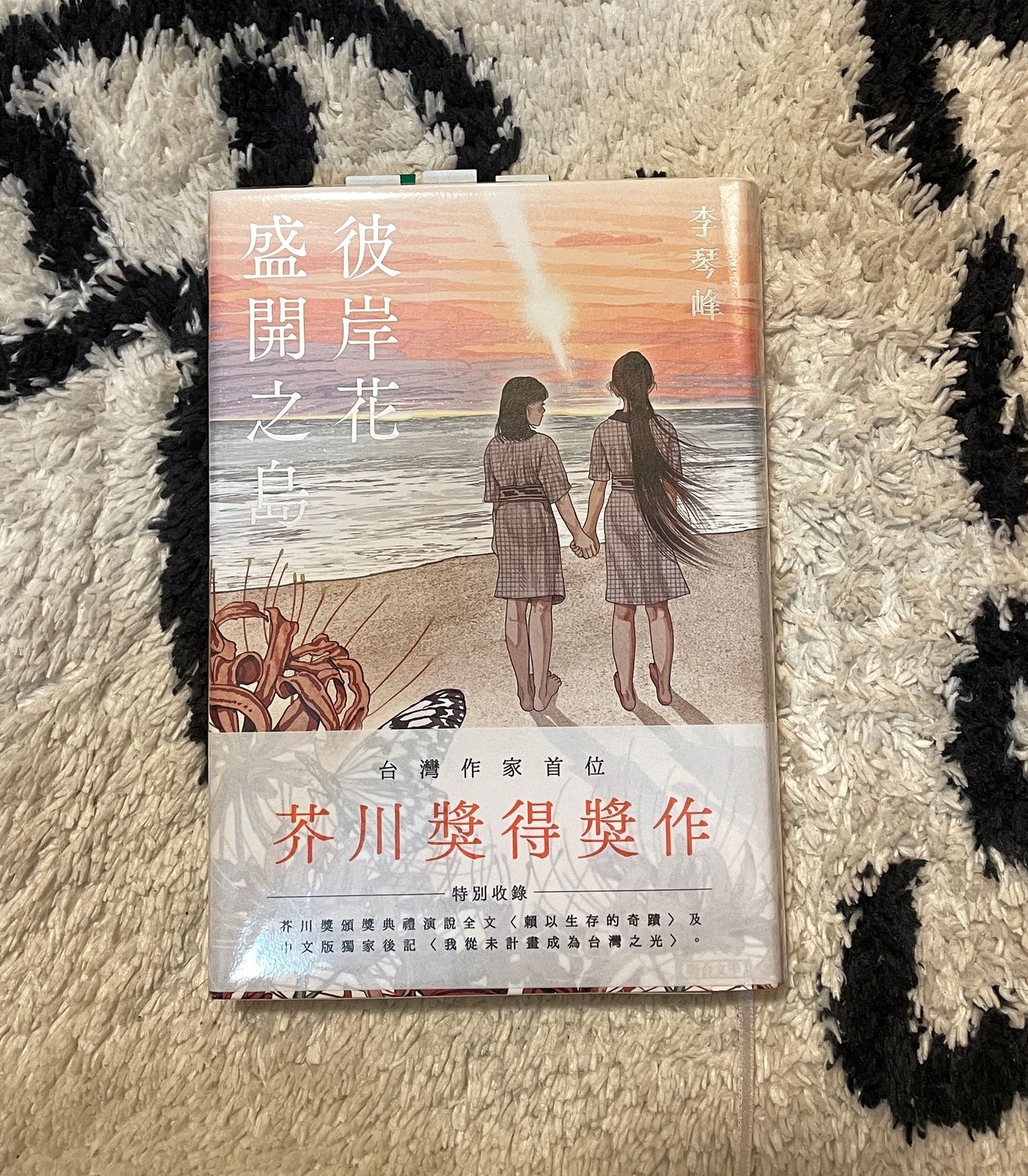
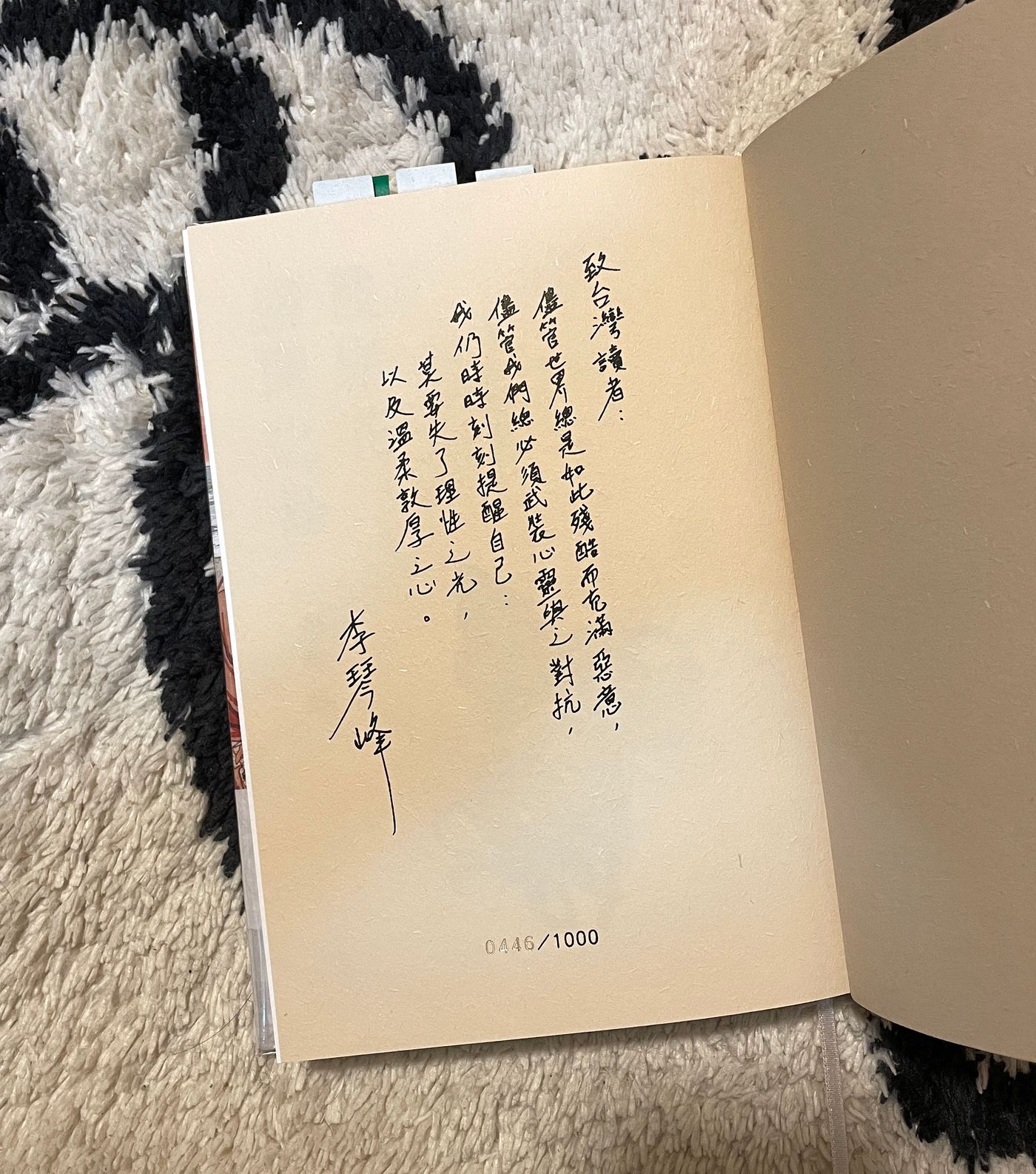
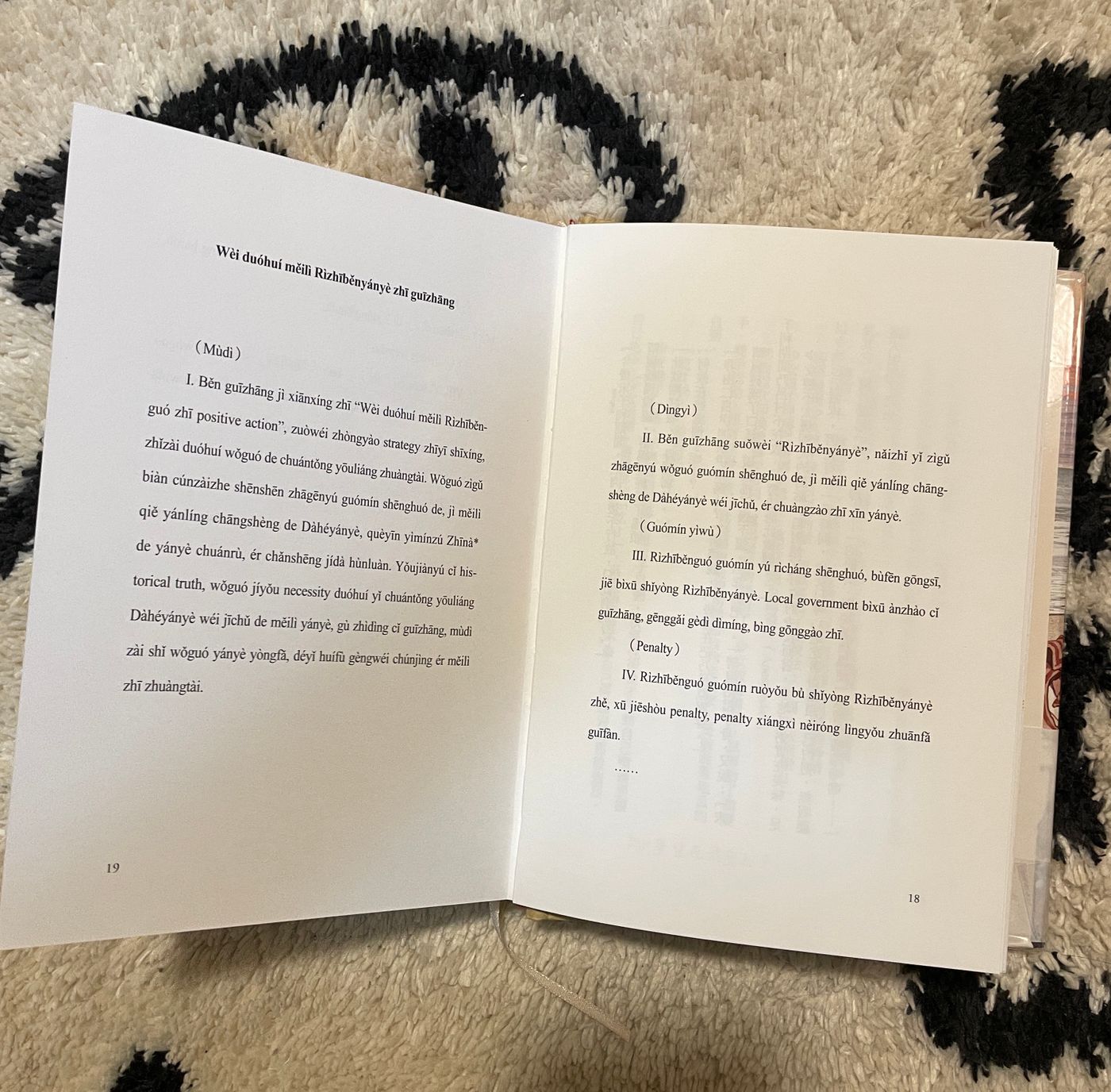
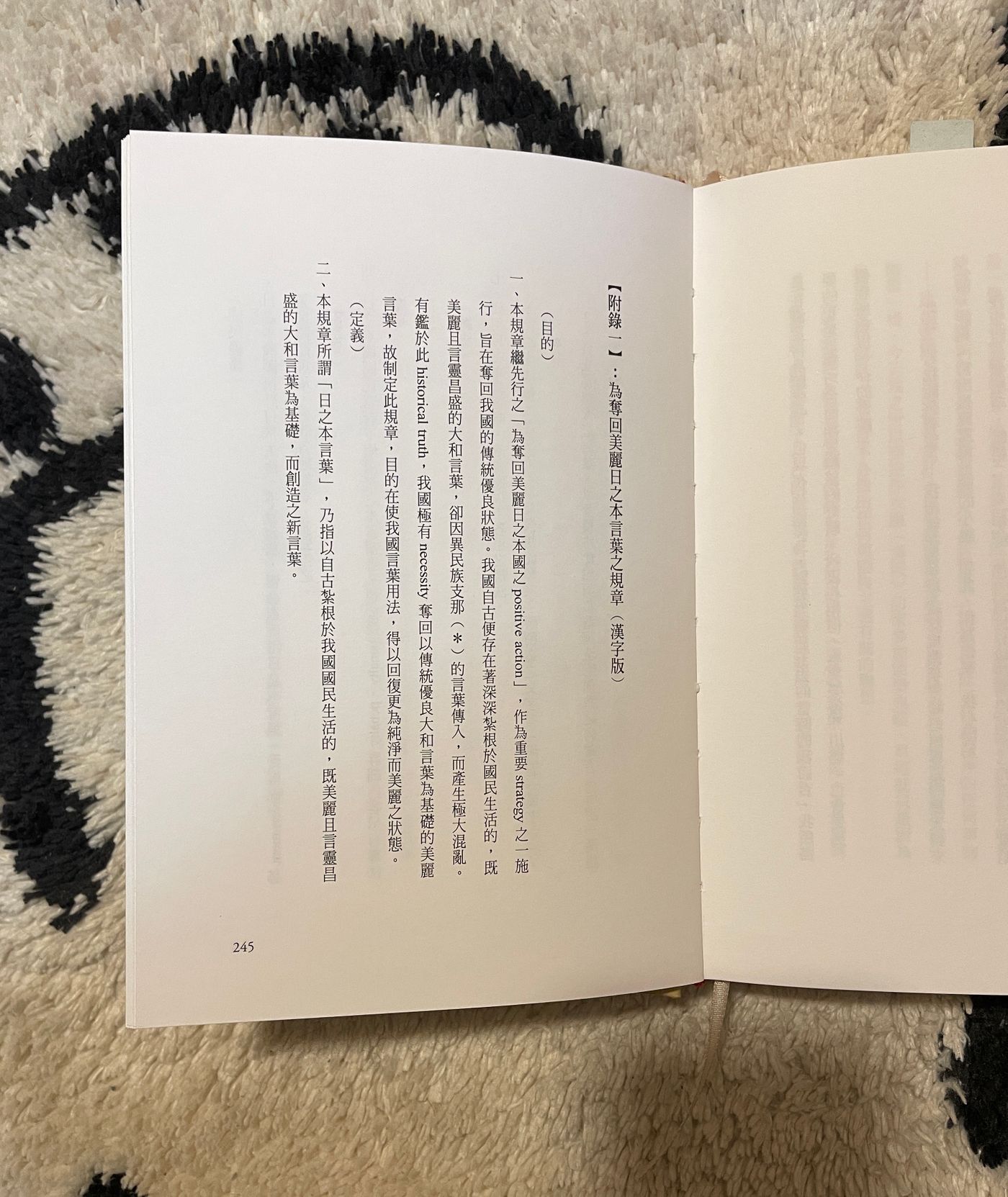
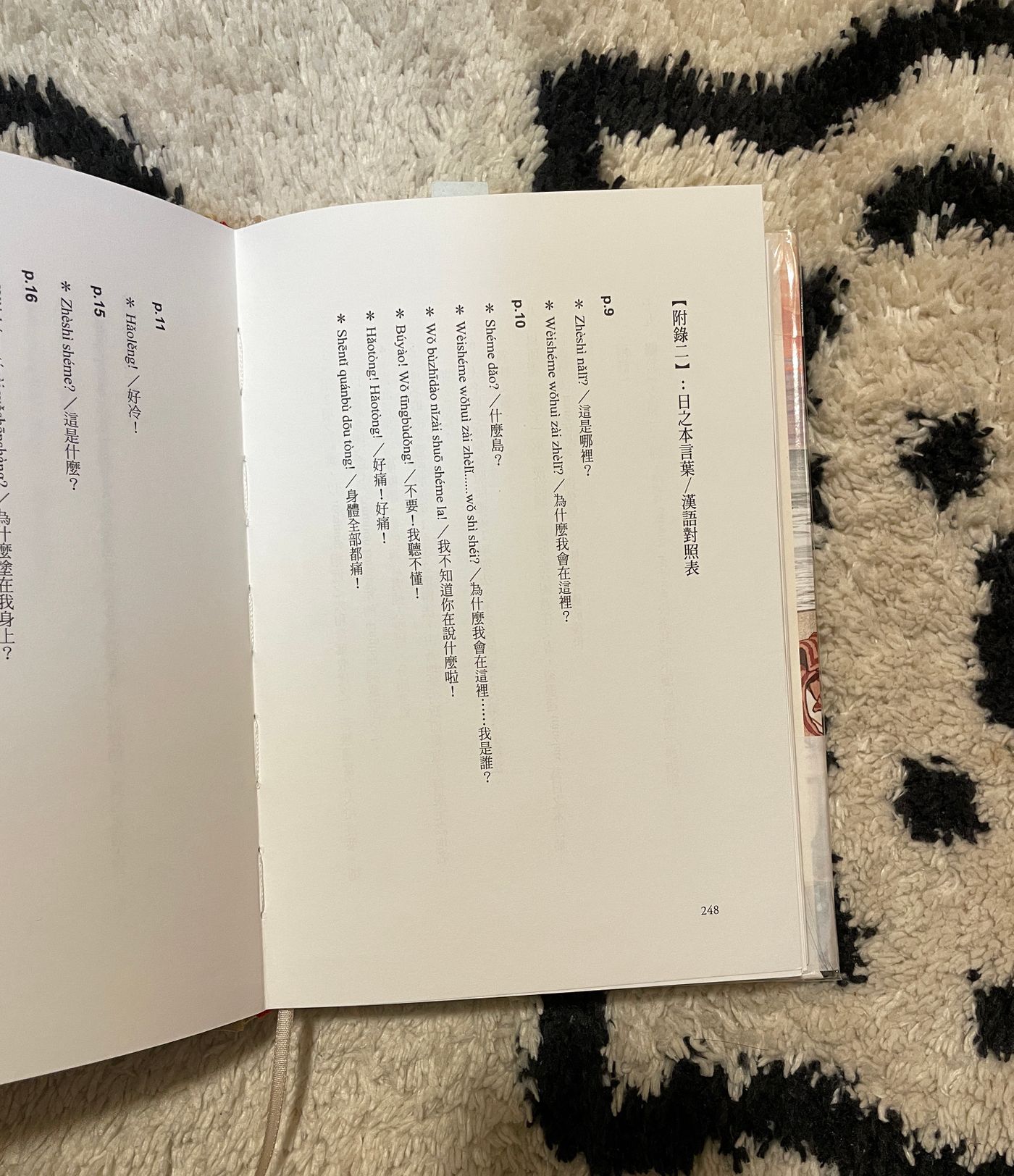
Like my work? Don't forget to support and clap, let me know that you are with me on the road of creation. Keep this enthusiasm together!
